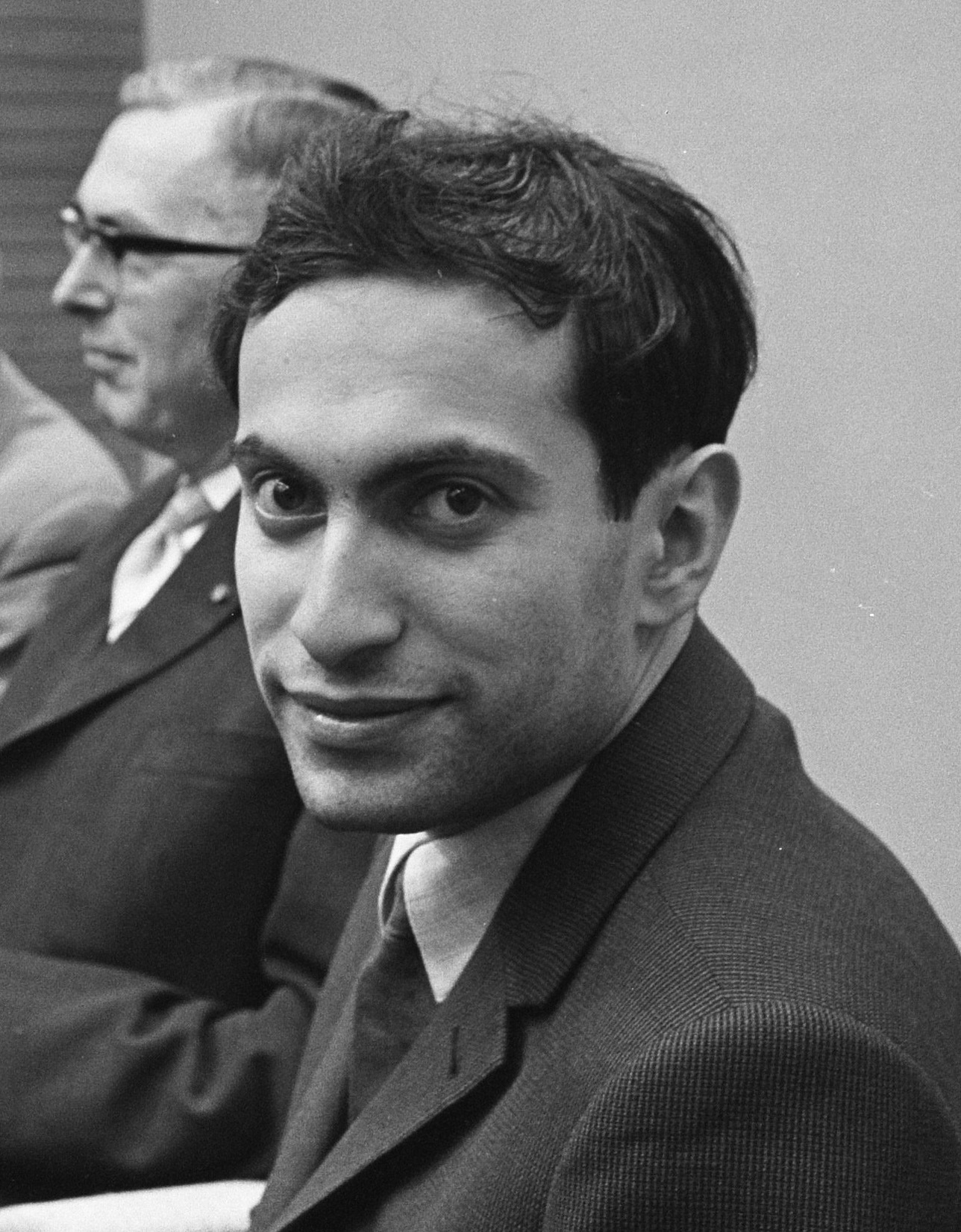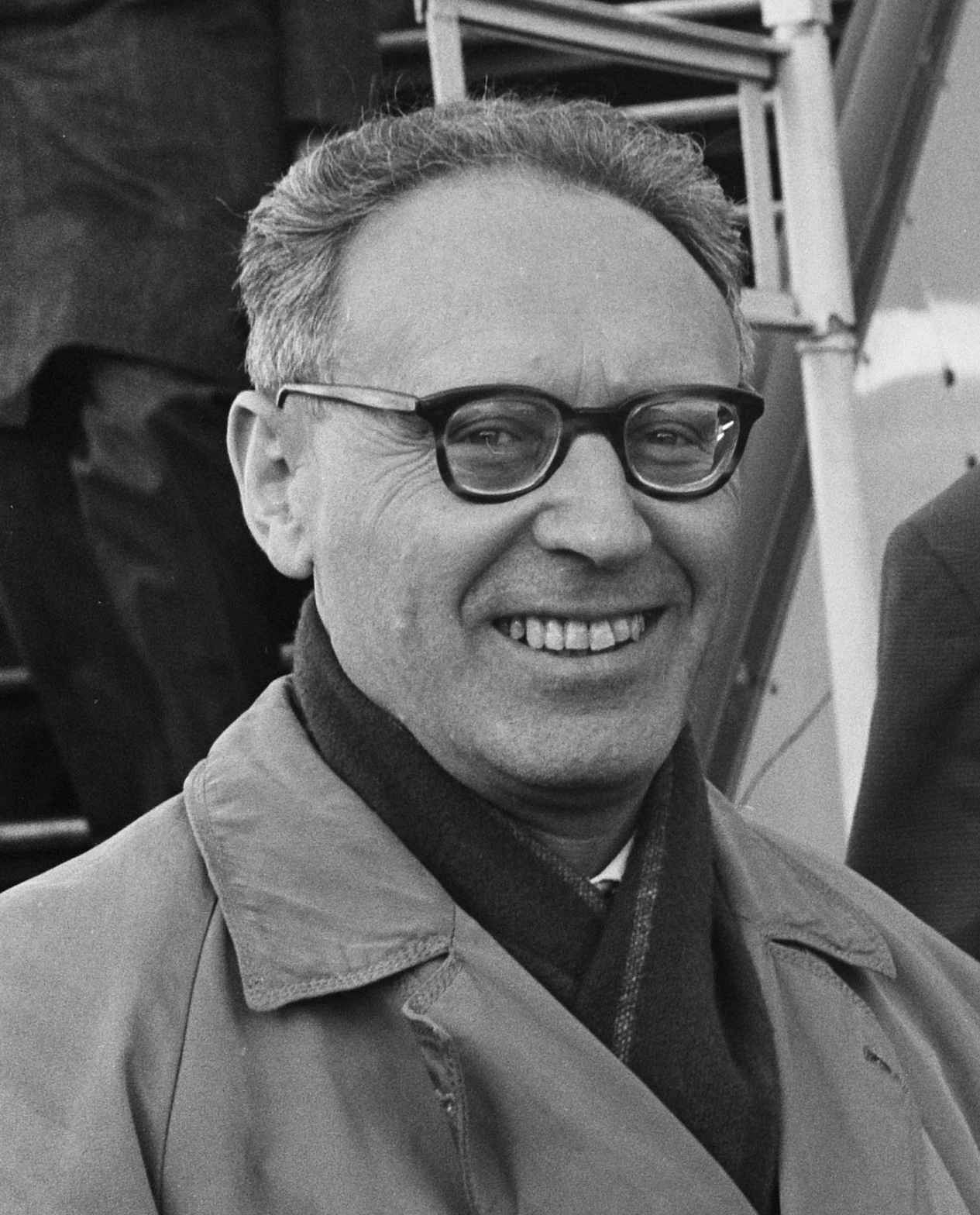|
World Chess Championship 1961
The 1961 World Chess Championship was played between former champion Mikhail Botvinnik and champion Mikhail Tal in Moscow from March 15 to May 13, 1961. Tal had unseated Botvinnik in the 1960 match; thus, Botvinnik was entitled to this rematch the next year. Tal was considered a strong favourite due to his heavy win the previous year, and being 25 years younger. Botvinnik won convincingly, by a 13–8 margin, regaining the world title. Although Tal suffered kidney illness in 1962, there was no hint of it at the time, and commentators put the victory down to Botvinnik playing a superior strategy, and being able to combat Tal's attacking style. ''Montreal Gazette'', June 1, 1961, p. 27 However, in 2002, |
Mikhail Tal
Mikhail Nekhemyevich Tal; rus, Михаил Нехемьевич Таль, ''Mikhail Nekhem'yevich Tal' '', ; sometimes transliterated ''Mihails Tals'' or ''Mihail Tal'' (9 November 1936 – 28 June 1992) was a Soviet-Latvian chess player and the eighth World Chess Champion. He is considered a creative genius within the game of chess and one of its best ever players. Tal played in an attacking and daring combinatorial style. His play was known above all for improvisation and unpredictability. It has been said that "Every game for him was as inimitable and invaluable as a poem". His nickname was "Misha", a diminutive for Mikhail, and he earned the nickname "The Magician from Riga". Both ''The Mammoth Book of the World's Greatest Chess Games'' and ''Modern Chess Brilliancies'' include more games by Tal than any other player. He also held the record for the longest unbeaten streak in competitive chess history with 95 games (46 wins, 49 draws) between 23 October 1973 and 16 O ... [...More Info...] [...Related Items...] OR: [Wikipedia] [Google] [Baidu] |
Mikhail Botvinnik
Mikhail Moiseyevich Botvinnik, ( – May 5, 1995) was a Soviet and Russian chess grandmaster. The sixth World Chess Champion, he also worked as an electrical engineer and computer scientist and was a pioneer in computer chess. Botvinnik was the first world-class player to develop within the Soviet Union. He also played a major role in the organization of chess, making a significant contribution to the design of the World Chess Championship system after World War II and becoming a leading member of the coaching system that enabled the Soviet Union to dominate top-class chess during that time. His pupils include World Champions Anatoly Karpov, Garry Kasparov and Vladimir Kramnik. Early years Botvinnik was born on August 17, 1911, in what was then Kuokkala, Vyborg Governorate, Grand Duchy of Finland, now the district of Repino in Saint Petersburg. His parents were Russian Jews; his father, Moisei Botvinnik (1878–1931), was a dental technician and his mother, Shifra (Se ... [...More Info...] [...Related Items...] OR: [Wikipedia] [Google] [Baidu] |
World Chess Championship 1960
The 1960 World Chess Championship was played between Mikhail Botvinnik and Mikhail Tal in Moscow from March 15 to May 7, 1960. Botvinnik was the reigning champion, after winning the World Chess Championship 1958, while Tal qualified by winning the Candidates tournament. Tal won by a margin of 4 points. 1958 Interzonal tournament An interzonal chess tournament was held in Portorož, SR Slovenia, SFR Yugoslavia, in August and September 1958. The top six finishers qualified for the Candidates Tournament. Before the final round, the leaders were: (1st) Tal 13; (2nd-3rd) Gligoric, Petrosian 12½ (though Petrosian had the bye in the last round); (4th) Benko 12; (5th-6th) Fischer, Bronstein 11½; (7th-10th) Olafsson, Averbakh, Szabo, Pachman 11. In the final round Fischer had black against Gligoric; while Bronstein, Olafsson, Szabo and Pachman had relatively weaker opponents. Feeling he was forced to play for a win, Fischer played the risky but double-edged Goteborg variation of the S ... [...More Info...] [...Related Items...] OR: [Wikipedia] [Google] [Baidu] |
World Chess Championship 1963
At the World Chess Championship 1963, Tigran Petrosian narrowly qualified to challenge Mikhail Botvinnik for the World Chess Championship, and then won the match to become the ninth World Chess Champion. The cycle is particularly remembered for the controversy surrounding the Candidates' Tournament at Curaçao in 1962, which resulted in FIDE changing the format of the Candidates Tournament to a series of knockout matches. Structure The world championship cycle was under the jurisdiction of FIDE, the World Chess Federation, which set the structure for the fifth world championship series at the 1959 FIDE Congress in Luxembourg.Wade, pp. 54–55 The cycle began with the zonal tournaments of 1960. The top finishers in the zonals met at the Interzonal, with the top six players from the Interzonal qualifying for the Candidates' Tournament. They were then joined by Mikhail Tal (loser of the last World Championship match in 1961) and Paul Keres (runner-up at the 1959 Candidates) in ... [...More Info...] [...Related Items...] OR: [Wikipedia] [Google] [Baidu] |
World Chess Championship
The World Chess Championship is played to determine the world champion in chess. The current world champion is Magnus Carlsen of Norway, who has held the title since 2013. The first event recognized as a world championship was the World Chess Championship 1886, 1886 match between the two leading players in the world, Wilhelm Steinitz and Johannes Zukertort. Steinitz won, becoming the first world champion. From 1886 to 1946, the champion set the terms, requiring any challenger to raise a sizable stake and defeat the champion in a match in order to become the new world champion. Following the death of reigning world champion Alexander Alekhine in 1946, FIDE (the International Chess Federation) took over administration of the World Championship, beginning with the World Chess Championship 1948, 1948 World Championship tournament. From 1948 to 1993, FIDE organized a set of tournaments to choose a new challenger every three years. World Chess Championship 1993, In 1993, reigning cha ... [...More Info...] [...Related Items...] OR: [Wikipedia] [Google] [Baidu] |
Moscow
Moscow ( , US chiefly ; rus, links=no, Москва, r=Moskva, p=mɐskˈva, a=Москва.ogg) is the capital and largest city of Russia. The city stands on the Moskva River in Central Russia, with a population estimated at 13.0 million residents within the city limits, over 17 million residents in the urban area, and over 21.5 million residents in the metropolitan area. The city covers an area of , while the urban area covers , and the metropolitan area covers over . Moscow is among the world's largest cities; being the most populous city entirely in Europe, the largest urban and metropolitan area in Europe, and the largest city by land area on the European continent. First documented in 1147, Moscow grew to become a prosperous and powerful city that served as the capital of the Grand Duchy that bears its name. When the Grand Duchy of Moscow evolved into the Tsardom of Russia, Moscow remained the political and economic center for most of the Tsardom's history. When th ... [...More Info...] [...Related Items...] OR: [Wikipedia] [Google] [Baidu] |
Yuri Averbakh
Yuri Lvovich Averbakh (russian: Ю́рий Льво́вич Аверба́х; 8 February 1922 – 7 May 2022) was a Russian chess grandmaster and author. He was chairman of the USSR Chess Federation from 1973 to 1978. He was the first centenarian FIDE Grandmaster. Despite his eyesight and hearing having worsened, by his 100th birthday he continued to devote time to chess-related activities. Early life Averbakh was born in Kaluga, Russia. His father was German Jewish, and his ancestors were named Auerbach, meaning "meadow brook". His mother was Russian. Both sets of grandparents disapproved of their marriage because his father was likely an atheist and his mother was Eastern Orthodox, as well as the fact that his maternal grandmother died very young, so his mother was expected to look after the family. Averbakh called himself a fatalist. Career Tournament successes His first major success was the first place in the Moscow Championship of 1949, ahead of players including Andor ... [...More Info...] [...Related Items...] OR: [Wikipedia] [Google] [Baidu] |
Riga
Riga (; lv, Rīga , liv, Rīgõ) is the capital and largest city of Latvia and is home to 605,802 inhabitants which is a third of Latvia's population. The city lies on the Gulf of Riga at the mouth of the Daugava river where it meets the Baltic Sea. Riga's territory covers and lies above sea level, on a flat and sandy plain. Riga was founded in 1201 and is a former Hanseatic League member. Riga's historical centre is a UNESCO World Heritage Site, noted for its Art Nouveau/Jugendstil architecture and 19th century wooden architecture. Riga was the European Capital of Culture in 2014, along with Umeå in Sweden. Riga hosted the 2006 NATO Summit, the Eurovision Song Contest 2003, the 2006 IIHF Men's World Ice Hockey Championships, 2013 World Women's Curling Championship and the 2021 IIHF World Championship. It is home to the European Union's office of European Regulators for Electronic Communications (BEREC). In 2017, it was named the European Region of Gastronomy. I ... [...More Info...] [...Related Items...] OR: [Wikipedia] [Google] [Baidu] |
World Chess Championship 1891
In its most general sense, the term "world" refers to the totality of entities, to the whole of reality or to everything that is. The nature of the world has been conceptualized differently in different fields. Some conceptions see the world as unique while others talk of a "plurality of worlds". Some treat the world as one simple object while others analyze the world as a complex made up of many parts. In ''scientific cosmology'' the world or universe is commonly defined as " e totality of all space and time; all that is, has been, and will be". '' Theories of modality'', on the other hand, talk of possible worlds as complete and consistent ways how things could have been. ''Phenomenology'', starting from the horizon of co-given objects present in the periphery of every experience, defines the world as the biggest horizon or the "horizon of all horizons". In ''philosophy of mind'', the world is commonly contrasted with the mind as that which is represented by the mind. ''Th ... [...More Info...] [...Related Items...] OR: [Wikipedia] [Google] [Baidu] |
World Chess Championships
The World Chess Championship is played to determine the world champion in chess. The current world champion is Magnus Carlsen of Norway, who has held the title since 2013. The first event recognized as a world championship was the 1886 match between the two leading players in the world, Wilhelm Steinitz and Johannes Zukertort. Steinitz won, becoming the first world champion. From 1886 to 1946, the champion set the terms, requiring any challenger to raise a sizable stake and defeat the champion in a match in order to become the new world champion. Following the death of reigning world champion Alexander Alekhine in 1946, FIDE (the International Chess Federation) took over administration of the World Championship, beginning with the 1948 World Championship tournament. From 1948 to 1993, FIDE organized a set of tournaments to choose a new challenger every three years. In 1993, reigning champion Garry Kasparov broke away from FIDE, which led to a rival claimant to the title of W ... [...More Info...] [...Related Items...] OR: [Wikipedia] [Google] [Baidu] |

.jpg)


.jpg)
